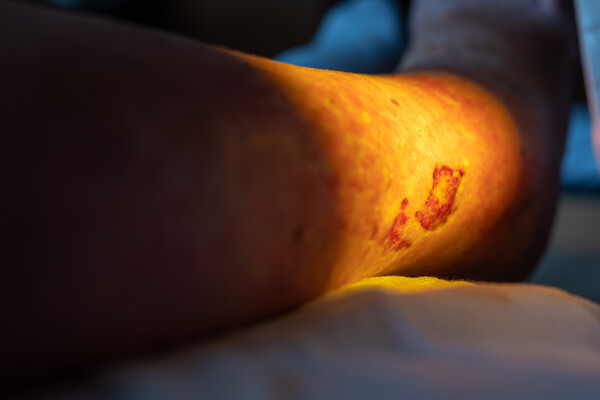Anterogen has failed to achieve statistically significant results from its U.S. phase 2 trial of ALLO-ASC-SHEET for diabetic foot ulcers (DFU). The company said it plans to focus on additional trials in Wagner Grade 2 patients, a group with more severe cases.
Last Friday, Anterogen released top-line data from the U.S. phase 2 (DFU-102) trial of ALLO-ASC-SHEET in patients with Wagner Grade 1 diabetic foot ulcers.

The trial randomized 66 patients in a 1:1 ratio to receive ALLO-ASC-SHEET (treatment arm) or a hydrogel sheet (control arm). The hydrogel sheet used in the control arm is a dressing treatment for diabetic foot ulcers.
The primary endpoint was the proportion of patients achieving complete wound closure over 12 weeks. Complete wound closure is defined as full ulcer healing. The results showed that the rate of complete wound closure in the treatment group (45.7 percent) was lower than the control group (60.0 percent) and did not reach statistical significance (p=0.2503).
The results indicate that ALLO-ASC-SHEET did not demonstrate an efficacy advantage over conventional hydrogel sheets in Wagner Grade 1 patients. Wagner Grade measures the severity of diabetic foot ulcers, with Grade 1 being superficial ulcers confined to the skin layer, while Grade 2 is more severe, involving the muscles and ligaments and carrying a higher risk of infection.
Anterogen's ALLO-ASC-SHEET is an allogeneic adipose-derived stem cell therapy in sheet form. It is being developed as a treatment for dystrophic bullous epidermolysis bullosa (DEB) and diabetic foot ulcers and was expected to show cell regeneration and tissue healing effects that are difficult to achieve with conventional dressings or antibiotics.
However, Anterogen has experienced several setbacks in domestic and international clinical trials. It failed to meet its primary endpoint in a Korean phase 3 trial (DFU-301) and is conducting an additional trial (DFU-302) in a Wagner Grade 2 patient population.
In the U.S., it received phase 1/2a approval from the Food and Drug Administration (FDA) in November 2016. Although the company could obtain a waiver from phase 1/2a and move directly into phase 2 based on the Korean phase 2 results, the data ultimately did not achieve statistical significance.
“We plan to obtain therapeutically confirmatory results from the ongoing U.S. phase 2 (DFU-103) in Wagner Grade 2 patients,” Anterogen said in its disclosure. The success of the ongoing phase 2 trial in Wagner Grade 2 patients will likely determine the fate of further development.
Anterogen initially had a close relationship with Bukwang Pharmaceutical.
Its founder, Lee Sung-koo, worked at Bukwang Pharmaceutical for 25 years and served as its CEO. Bukwang was also an early investor in Anterogen, initially holding a significant stake. However, Bukwang stepped down as the largest shareholder in October 2018, reducing its stake from 18.71 percent to 16.14 percent, and disposed of all its shares by 2020. Currently, there is no equity relationship between the two companies.

